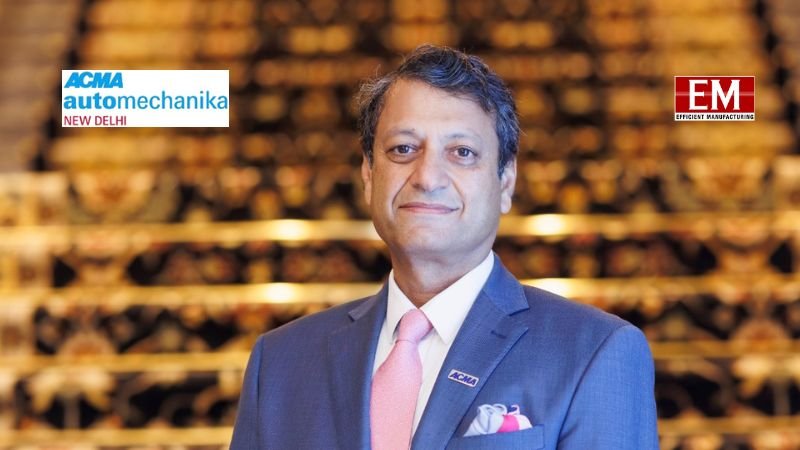As India accelerates toward a sustainable future, BAXY Mobility stands at the forefront of the country’s electro-mobility revolution. In an interview with Anushka Vani, Kumar Ramamurthi, CEO of BAXY Mobility spoke about how BAXY Mobility is driving the transition to greener transportation. From overcoming industry-wide production challenges to spearheading advancements in electric three-wheelers, the company remains committed to shaping a robust and energy-efficient EV ecosystem. In this exclusive email interview, BAXY Mobility shares insights into its contributions, challenges, and vision for India’s electric vehicle landscape.
- How does BAXY Mobility contribute to strengthening the electro-mobility sector in India?
As a key player in the electro-mobility sector in India, BAXY Mobility focuses on designing and manufacturing reliable, eco-friendly, and innovative electric vehicles tailored to meet the needs of urban and rural markets. With a focus on cutting-edge technology, sustainable solutions and customer-centric design, BAXY Mobility is contributing to reducing carbon emissions, promoting energy efficiency and supporting the nation’s transition towards a greener future. Through its robust infrastructure and commitment to quality, the company is driving the growth of electric mobility across India. - What are the major obstacles manufacturers face when scaling up production to meet the rising demand for electric three-wheelers (E-3Ws)?
In scaling up production to satisfy the growing demand for electric three-wheelers (E-3Ws), manufacturers face various challenges, such as the limited availability of essential components, elevated production costs, inefficiencies in the supply chain, and infrastructure limitations.
Additionally, ensuring consistent quality, meeting regulatory standards and addressing the need for a skilled workforce can further complicate the process. Overcoming these challenges requires strategic planning, investment in technology, and collaboration across the industry. - What are the significant technological breakthroughs in electric three-wheelers, especially concerning battery advancements and range enhancement?
BAXY Mobility is leveraging the digital transformation in the manufacturing sector by integrating advanced technologies such as IoT, AI and data analytics into its processes. This focus allows us to optimize operations, enhance product quality and improve decision-making. By embracing innovation and engineering excellence, BAXY Mobility aims to streamline workflows, reduce costs and deliver superior solutions that meet the evolving needs of their clients. - How does the carbon footprint of producing electric three-wheelers compare to that of traditional internal combustion engine three-wheelers?
E-3Ws during their operational life produce zero tailpipe emissions using battery as a power source. In contrast, ICE 3Ws using fossil fuels generate significant emissions throughout their use and this makes E-3Ws a cleaner and more environmentally friendly alternative in the long term and help to reduce the carbon footprint. - How do you view the current landscape of the Indian three-wheeler market, and what unique features or innovations does BAXY Mobility bring to this fast-growing industry?
Driven by increasing demand for eco-friendly and cost-effective transportation solutions, the Indian three-wheeler market is experiencing rapid growth. This dynamic landscape presents immense opportunities for innovation and sustainable development.
BAXY Mobility stands out by offering robust, energy-efficient and technologically advanced three-wheelers tailored to the diverse needs of Indian consumers. With a focus on innovation, durability and customer satisfaction, BAXY Mobility brings unique features such as enhanced performance, reliability and a strong emphasis on eco-friendly operations, contributing significantly to the evolving mobility landscape. - Can you provide an overview of BAXY Mobility’s manufacturing presence and capabilities in India? What measures do you take to optimize shop floor costs while maintaining high-quality standards?
BAXY Mobility currently operates from its state-of-the-art manufacturing facility in Roorkee, Uttarakhand, delivering high-quality products to customers nationwide. As part of our strategic vision, we are exploring opportunities to expand our manufacturing capabilities from this existing plant, with the potential to establish additional facilities in other regions across the country.
Our immediate focus, however, is on strengthening the supply chain base near the Roorkee plant. By optimizing our supply chain operations and establishing local supplier partnerships, we aim to effectively manage inbound logistics costs and maintain an optimal stock of raw materials. This approach is crucial to ensuring the consistent quality of our products, while also improving efficiency and reducing production lead times. - As the manufacturing sector embraces digital transformation, how is BAXY Mobility adopting advanced technologies to ensure engineering excellence?
To enhance its manufacturing processes, BAXY Mobility is embracing digital transformation by leveraging advanced technologies such as automation, data analytics, and precision engineering tools. These innovations enhance product quality, streamline operations, and ensure engineering excellence. By adopting smart manufacturing practices and leveraging cutting-edge design software, BAXY Mobility remains at the forefront of delivering reliable, efficient and sustainable mobility solutions. - What is BAXY Mobility’s long-term vision for the growth and development of the electric vehicle sector in India?
With a commitment to sustainable growth, BAXY Mobility aims to transform the electric vehicle sector in India by providing innovative, reliable and eco-friendly mobility solutions. The company aims to support the country’s transition to green transportation by focusing on advanced technology, expanding its product portfolio, and building a robust charging infrastructure. Through continuous innovation and collaboration, BAXY Mobility envisions playing a key role in making electric vehicles accessible and contributing to a cleaner, greener future for India. - What are your views on the role of EV charging infrastructure and government incentives in encouraging consumer adoption of electric vehicles?
To encourage consumer adoption of electric vehicles, both EV charging infrastructure and government incentives are essential..A widespread and accessible charging network alleviates range anxiety and ensures convenience for users, making EVs a practical choice. Meanwhile, government incentives, such as subsidies, tax benefits, and reduced registration fees, lower the initial cost of ownership and make EVs more affordable. Together, these factors create a supportive ecosystem that accelerates the transition to electric mobility.








